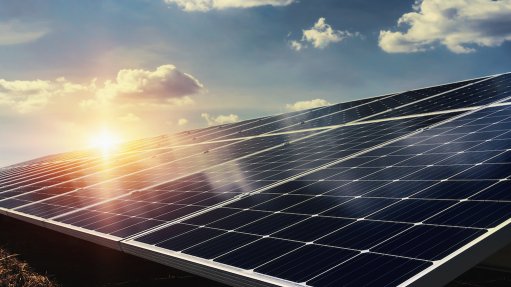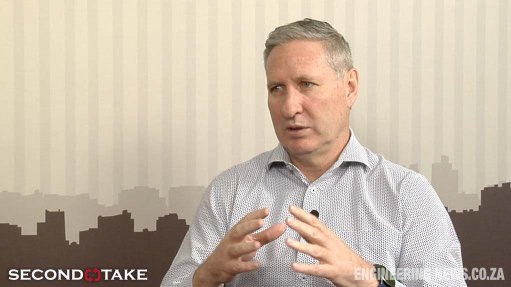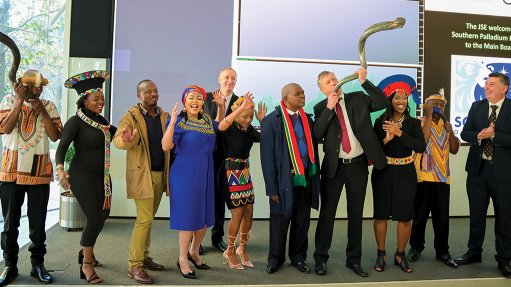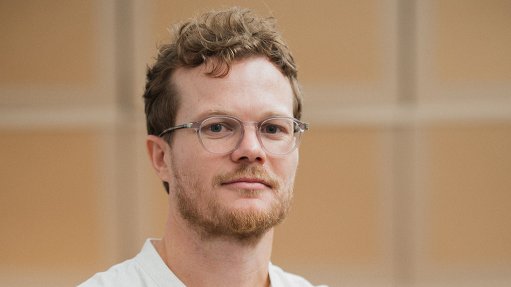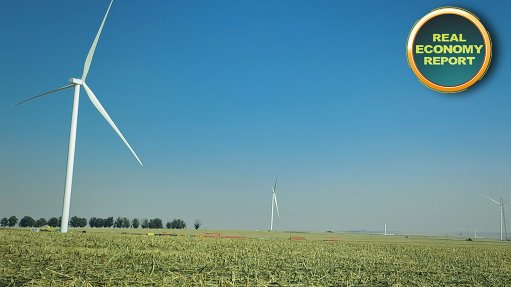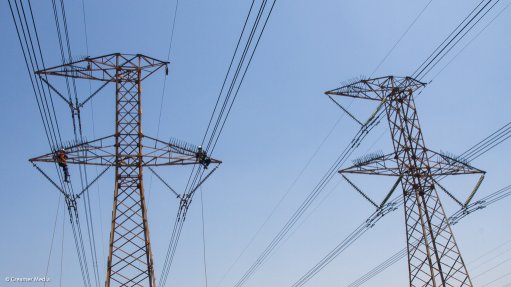Business making renewable energy strides, despite challenges
There are many strides being made by businesses and property owners in the country to provide some relief to consumers and tenants from persistent loadshedding.
This is despite several challenges such as grid capacity constraints and insufficient government policies, speakers outlined during a 'The Power Priority Event', hosted by Fortress Real Estate, in Johannesburg, on September 13.
Fortress Real Estate asset management head Bruce Collins said the company was optimistic about the energy future of the country, despite the many challenges and constraints, given the renewable energy that had been installed and that was still in the pipeline.
In this vein, he pointed out that Fortress was rolling out solar energy at pace, with 25 installed plants and the company planning to double this by the end of next year.
Collins highlighted that increasing solar energy allowed the company to reduce its carbon footprint as well as reduce its water use, as it used less power from State-owned utility Eskom, which used coal and considerable amounts of water to generate electricity.
Moreover, he said that solar energy presented a unique opportunity for the company to increase its revenue streams from an avenue outside of its gross lettable area, with the returns from solar being attractive. “From a business perspective, it makes sense as well.”
He averred that many property companies were well positioned to contribute towards bolstering renewable energy capacity, if they had a portfolio that supported the land requirements for this, and further, if their tenants were not high energy users.
Further, he said that, often, excess power was generated, and that government needed to sort out its policies to allow wheeling from businesses that had the capacity.
Fortress Real Estate sustainability head PC Potgieter pointed out that green leasing was a trend that was gaining momentum in the country, with this being “mutually beneficial to the tenant and the landlord”.
He mentioned that some resistance to this came from people not wanting to change the way things were done, as well as cost concerns, and that mitigating this required open communication and the seeking of solutions that would benefit both parties.
Food & Trees for Africa executive director Chris Wild said that, while government support had been better of late, with more supportive policies and an acceptance of increasing renewable energy, more needed to be done to bolster capacity, such as issuing more independent power production licences.
He emphasised that the most important aspect for government to deal with would be to improve the grid capacity to deliver energy from places where renewable energy was generated to other parts of the country.
This was reiterated by Collins, who pointed out that the amount of energy coming online by 2030 should be enough to solve the country’s energy crisis. Therefore, transmission of this power, rather than production, was the issue that needed to be rectified.
Fortress Real Estate CEO Steven Brown emphasised that the private sector was doing whatever it could to fill the gap where government was lacking, but pointed out that it could not set government regulations, and called for clarity on matters such as efficient wheeling.
From an individual homeowner perspective, Standard Bank Energy and Infrastructure executive Vincenzia Leitich pointed out that the bank had supported several photovoltaic panel and battery installations, which had enabled affordability for homeowners.
Touching on battery storage, Solareff CEO De Villiers Botha explained that because this would be used to provide energy security in the country, what was required in terms of development was for technology that enabled a seamless transfer from one system to another, to ensure that equipment did not get damaged when loadshedding started or ended.
Article Enquiry
Email Article
Save Article
To advertise email advertising@creamermedia.co.za or click here
Comments
Announcements
What's On
Subscribe to improve your user experience...
Option 1 (equivalent of R125 a month):
Receive a weekly copy of Creamer Media's Engineering News & Mining Weekly magazine
(print copy for those in South Africa and e-magazine for those outside of South Africa)
Receive daily email newsletters
Access to full search results
Access archive of magazine back copies
Access to Projects in Progress
Access to ONE Research Report of your choice in PDF format
Option 2 (equivalent of R375 a month):
All benefits from Option 1
PLUS
Access to Creamer Media's Research Channel Africa for ALL Research Reports, in PDF format, on various industrial and mining sectors
including Electricity; Water; Energy Transition; Hydrogen; Roads, Rail and Ports; Coal; Gold; Platinum; Battery Metals; etc.
Already a subscriber?
Forgotten your password?
Receive weekly copy of Creamer Media's Engineering News & Mining Weekly magazine (print copy for those in South Africa and e-magazine for those outside of South Africa)
➕
Recieve daily email newsletters
➕
Access to full search results
➕
Access archive of magazine back copies
➕
Access to Projects in Progress
➕
Access to ONE Research Report of your choice in PDF format
RESEARCH CHANNEL AFRICA
R4500 (equivalent of R375 a month)
SUBSCRIBEAll benefits from Option 1
➕
Access to Creamer Media's Research Channel Africa for ALL Research Reports on various industrial and mining sectors, in PDF format, including on:
Electricity
➕
Water
➕
Energy Transition
➕
Hydrogen
➕
Roads, Rail and Ports
➕
Coal
➕
Gold
➕
Platinum
➕
Battery Metals
➕
etc.
Receive all benefits from Option 1 or Option 2 delivered to numerous people at your company
➕
Multiple User names and Passwords for simultaneous log-ins
➕
Intranet integration access to all in your organisation







